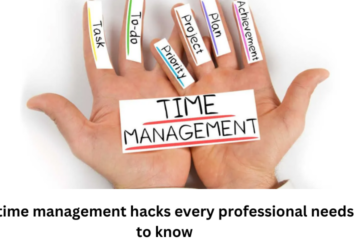Managing multiple properties can be complex and challenging, but it can also be rewarding and profitable. Here are some things that landlords with multiple properties should know:
Managing Multiple Properties: Tips and Strategies
There are several strategies and tips that can help landlords effectively manage multiple properties:
- Hire a property management company: Property management companies can handle many of the day-to-day tasks involved in managing multiple properties, such as finding and screening tenants, handling maintenance and repairs, and collecting rent.
- Use technology to streamline tasks: A variety of software and online tools can help landlords manage multiple properties more efficiently, such as property management software and rental listing websites.
- Set clear expectations with tenants: Landlords should communicate their expectations to tenants in a clear and consistent manner and provide them with information on how to contact the landlord or property management company if they have questions or concerns.
- Stay organized: Keeping detailed records and documentation can help landlords keep track of important information and stay organized when managing multiple properties.
Finding and Screening Tenants for Multiple Properties
Finding and screening tenants is an important part of managing multiple properties. Landlords should follow these steps when looking for and screening tenants:
- Determine the desired tenant profile: Landlords should consider factors such as the type of property, the location, and the desired rental rate when determining the ideal tenant profile.
- Advertise the property: Landlords can use a variety of methods to advertise their properties, such as online rental listing websites, classified ads, and open houses.
- Review applications and conduct interviews: Landlords should review tenant applications carefully and conduct interviews to get a sense of the prospective tenant’s reliability and suitability.
- Check references and conduct a background check: Landlords should check references and conduct a background check to verify the information provided by the tenant and to screen for any red flags.
Maintaining and Upgrading Multiple Properties
Maintaining and upgrading multiple properties can be a time-consuming and costly task, but it is essential for keeping properties in good condition and attracting high-quality tenants. Landlords should consider the following when maintaining and upgrading their properties:
- Create a maintenance schedule: Landlords should create a schedule for performing regular maintenance tasks, such as cleaning, painting, and minor repairs. Have a building management system.
- Respond promptly to maintenance requests: Landlords should make sure to respond promptly to tenant maintenance requests to keep properties in good condition and maintain tenant satisfaction.
- Consider energy-efficient upgrades: Upgrading to energy-efficient appliances and systems can save landlords money on utilities and improve the overall efficiency of their properties.
- Make cosmetic upgrades: Landlords should consider making cosmetic upgrades, such as updating flooring or kitchen countertops, to improve the appearance of their properties and make them more attractive to tenants.
Handling Tenant Issues and Disputes for Multiple Properties
Dealing with tenant issues and disputes is an inevitable part of managing multiple properties. Landlords should handle these issues fairly and professionally and consider the following:
- Communicate with tenants: Landlords should make sure to communicate with tenants openly and honestly to address any issues or concerns they may have.
- Follow landlord-tenant laws: Landlords should familiarize themselves with landlord-tenant laws and make sure to follow them when dealing with tenant issues.
- Use mediation or arbitration: If disputes cannot be resolved through direct communication, landlords may want to consider using mediation or arbitration to resolve the issue.
Complying with Landlord-Tenant Law for Multiple Properties
Landlords are subject to a variety of laws and also fully understand the tenant rights oregon that govern the landlord-tenant relationship. Therefore, landlords with multiple properties should familiarize themselves with these laws and make sure to comply with them to avoid legal issues. Some key areas to consider include the following:
- Fair housing laws: Landlords should be aware of fair housing laws that prohibit discrimination based on race, religion, gender, and other protected characteristics.
- Rent control laws: Some jurisdictions have rent control laws regulating the amount landlords can charge. Landlords should be aware of these laws and make sure to comply with them.
- Security deposit laws: Landlord-tenant laws typically regulate how security deposits can be collected, held, and returned. Landlords should be familiar with these laws and follow them when collecting and returning security deposits.
- Eviction laws: Landlords should be familiar with eviction and follow the proper procedures for evicting tenants.







